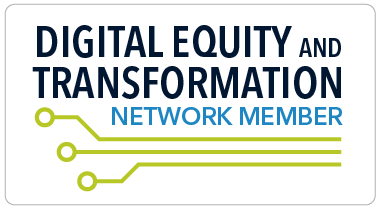Areas of Focus
Key educational priorities that shape our teacher preparation programs
Technology in Education (TiE)
Technology is embedded in the Conceptual Framework and the School of Education requires the integration of the International Society for Technology in Education (ISTE) Standards for Educators into all its courses as mandated by national standards. In addition to the ISTE Standards for Educators, faculty and teacher candidates use the ISTE Standards for Students in lesson and unit planning.

Social and Emotional Learning (SEL)
Social and emotional learning (SEL) is an integral part of education and human development. SEL is the process through which all young people and adults acquire and apply the knowledge, skills, and attitudes to develop healthy identities, manage emotions and achieve personal and collective goals, feel and show empathy for others, establish and maintain supportive relationships, and make responsible and caring decisions. SEL can help address various forms of inequity and empower young people and adults to co-create thriving schools and contribute to safe, healthy, and just communities.
Cultural and Linguistic Diversity (CLD)
The School of Education has proposed to work collaboratively with the Mississippi Department of Education and the University of Florida's CEEDAR Center to develop a blueprint and redesign key courses to address the areas of cultural and linguistic diversity and learning differences. The goal is for cultural relevance to be evident through the integration of cultural knowledge, prior experiences, and performance styles of diverse learners to make learning more appropriate and effective for them; it teaches to and through the strengths of our learners. This will require highly-skilled and highly-qualified consultants and instructors who integrate a wide variety of instructional strategies that are connected to different approaches to learning.
Diverse learners and students with learning differences are those who, because of gender, language, cultural background, differing ability levels, disabilities, learning approaches, and/or socioeconomic status may have academic needs that require varied instructional strategies to ensure their learning. Learning differences are manifested in such areas as differing rates of learning, motivation, attention, preferred learning modalities, complexity of reasoning, persistence, foundational knowledge and skills, and preferred learning and response modes. (InTASC, 2013)
Professional Learning and Positive Learning Environment
Teacher candidates play a critical role in student learning. In their role, teacher candidates need feedback and high-quality learning experiences to continuously improve their professional practices and learning. Professional learning is an ongoing, job-embedded process that supports transfer of newly learned knowledge and skills to practice. Such learning also needs to be continuously evaluated and refined. Through virtual and onsite field and clinical experiences and practices, teacher candidates are facilitated by experienced cooperating teachers who guide, firsthand, practical activities designed to allow for practicing and demonstrating the application of professional knowledge and theory in field-based settings. These include, but are not limited to, culminating clinical practices such as student-teaching or internship. These experiences are used to:
- Enhance the impact that teacher candidates have on students and other school community stakeholders
- Highlight the teacher candidate's strengths and identifies areas of growth
- Serve as a guide for teacher candidates as they reflect on their own practices
- Provide shared understanding regarding priorities, goals, and expectations of quality practice
The School of Education provides professional and positive learning environments online and on campus to ensure our students receive high-quality instruction and high-impact feedback.
Learn More About Our Focus Areas
Contact the School of Education
Phone: (601) 977-7744
Email: education@tougaloo.edu
Location: Holmes Hall
